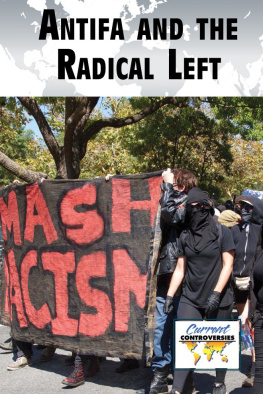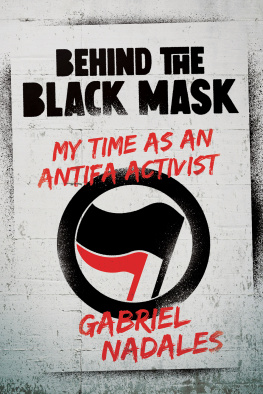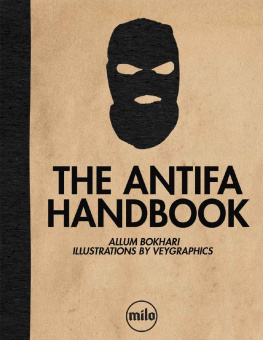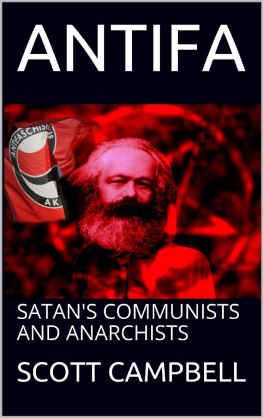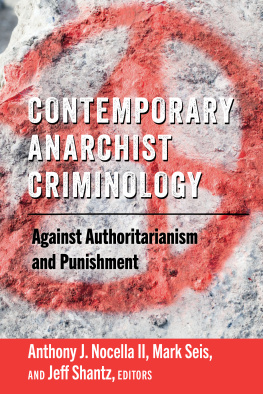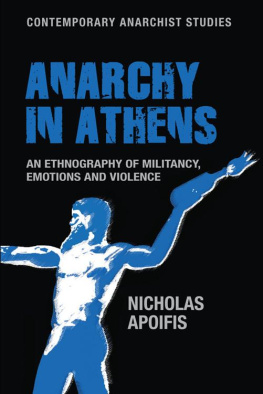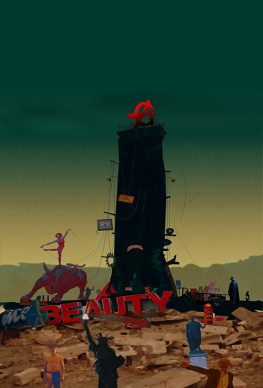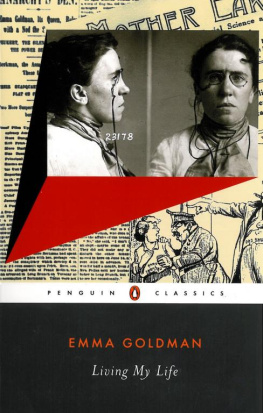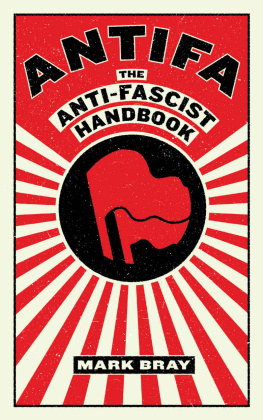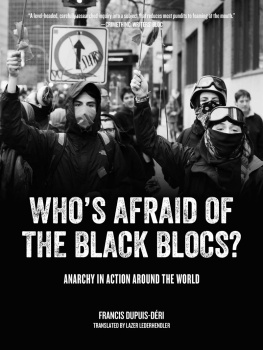
What people are saying about
Anti-Hero
Loziers book is a cocktail that mixes passion with politics, direct action with drunkenness, and self-deception with longing in his quest for belonging inside the alienating features of modern society. In doing so, he delivers a love letter to anyone curious enough to listen.
David Redmon , award-winning director of Mardi Gras: Made in China
In Anti-Hero , Lozier reminds us that Antifa activists and others on the radical Left are not as one-dimensional as political talking heads would like you to believe. And ultimately, if we want to overcome hatred and build a better society, we need to remember the simple truth that we are all more alike than different as human beings.
Gabriel Nadales , author of Behind the Black Mask, My Time as an Antifa Activist
Anti-Hero
Memories of a Black Bloc Anarchist

First published by Zero Books, 2022
Zero Books is an imprint of John Hunt Publishing Ltd., No. 3 East St., Alresford,
Hampshire SO24 9EE, UK
office@jhpbooks.com
www.johnhuntpublishing.com
www.zero-books.net
For distributor details and how to order please visit the Ordering section on our website.
Text copyright: A.J. Lozier 2020
ISBN: 978 1 78904 828 5
978 1 78904 829 2 (ebook)
Library of Congress Control Number: 2020951030
All rights reserved. Except for brief quotations in critical articles or reviews, no part of this book may be reproduced in any manner without prior written permission from the publishers.
The rights of A.J. Lozier as author have been asserted in accordance with the Copyright, Designs and Patents Act 1988.
A CIP catalogue record for this book is available from the British Library.
Design: Stuart Davies
UK: Printed and bound by CPI Group (UK) Ltd, Croydon, CR0 4YY
Printed in North America by CPI GPS partners
We operate a distinctive and ethical publishing philosophy in all areas of our business, from our global network of authors to production and worldwide distribution.
For Brianne, whose radical, revolutionary love burns
brighter than a Molotov cocktail.
Contents
Guide
This book would not have been possible without the loving support of so many friends, family and mentors who have selflessly given of themselves throughout my life.
I want to thank my mother and father, Jack and Laura Lozier, who endured so much hardship and provided me with a loving, stable home despite impossible odds. I have to especially thank my father for regaling me with stories of the 1960s which inspired my actions for so many years, even though he probably wishes he hadnt.
Thank you to my second-grade teacher, Ms Keller, who recognized my writing talent and read my first story to the whole class.
I want to thank my friends who read excerpts of my book and provided suggestions along the way, especially Stephen Smajstrla, Alan Suderman, Brent Furl and Tyler Woerner.
Thank you to my family, Brianne, Poete and Lennon, who always believed in me and gave me the time and space to write this book, which has consumed many hours over the past 2 years.
Thank you to David Redmon and Marcelo Andrade, whose courage, passion and dedication to the causes of global justice continue to inspire me to this day.
Thank you to all the members of Alcoholics Anonymous, who helped me achieve sobriety and to become a better person.
Finally, I want to thank everyone who was a part of my life story and appear in these pages under different names. Thank you for being yourself, and for helping shape the person I am today.
It was an icy cold morning in DC. I awoke on the floor of a strangers basement, exhausted after a 20-hour bus ride and only a few hours of sleep. My body ached from sleeping on the hardwood floor, and I craved coffee. But despite the physical discomfort and exhaustion, my heart thumped with excitement the moment I opened my eyes and remembered where I was. It was the morning of January 20, 2001 the day of George W. Bushs inauguration.
I had not come to DC to celebrate the inauguration. Far from it. I was one of tens of thousands who had traveled into the city to protest the most contested election in memory. My memory, anyway, as I was only 22 years old. It was only the second election in which I had been eligible to vote. Not that I was necessarily sad about Al Gores defeat, either. My vote had gone for Ralph Nader of the Green Party.
The year before, I attended protests at both the Republican and Democratic national conventions. I believed both political parties were bought and paid for by multinational corporations. Even my vote for Nader was cast grudgingly. My belief that all electoral politics were doomed to failure was growing deeper by the day.
This protest was particularly significant for me, because it represented a moment of stepping over the line. For the first time, I was going to participate in the anarchist Black Bloc. While the origins of the Black Bloc went back at least to the 1980s in Europe, it had first come to prominence in the United States during the 1999 protests against the World Trade Organization (WTO) in Seattle. While tens of thousands of protesters participated in nonviolent civil disobedience and marches, a few hundred radicals dressed in all black covered their faces and proceeded to shatter the windows of corporate businesses in the financial district. They were not interested in symbolic protest. They sought to dismantle the capitalist system by force.
While I only learned about the protests in Seattle through the evening news, I had spent the previous year maneuvering myself into the center of the action. Through various online channels I had acquired the phone number for a contact at the anarchist spokescouncil meeting which had been held in DC the night before. Prior to receiving this phone number, I had to provide references from within the leftist community. Fortunately, my experience at a direct action in Los Angeles the summer before, where I was arrested and spent 10 days in jail, passed muster with this crew. I was given a time and location for the convergence.
There was no need for the dress code to be explained to me. My friends and I, who had traveled together from Austin, were already dressed mostly in black when we woke up that morning, and we had black bandanas stuffed into our pockets. As we walked the several blocks across the city toward 14th and K, we spoke little but considered quietly the supplies we had brought in our backpacks. Vinegar and extra bandanas, to diffuse the effects of tear gas; water bottles, to wash our eyes should we be pepper sprayed; a knife in my pocket, which could be used to slash the tires of a police cruiser should the need arise.
When we turned the final corner on 14th Street, we saw a large sea of black in the park, over 500 anarchists and a large, black banner with white lettering: Class War Now . We tied the bandanas around our faces and picked up the pace as we headed toward the park, lest we get picked off by the police.
We hardly had a chance to step foot in the park before the march began, immediately spilling into the streets. My friends and I hurried to catch up and join the middle of the crowd. I was surrounded by black-masked faces, large banners, drums and passionate chants. Whose streets? Our streets! I was filled with a sense of exhilaration, adrenaline and power like I had never known. This is my moment , I thought. I am stepping across the pages of history. I am part of a revolution that will change the world forever .
Next page

